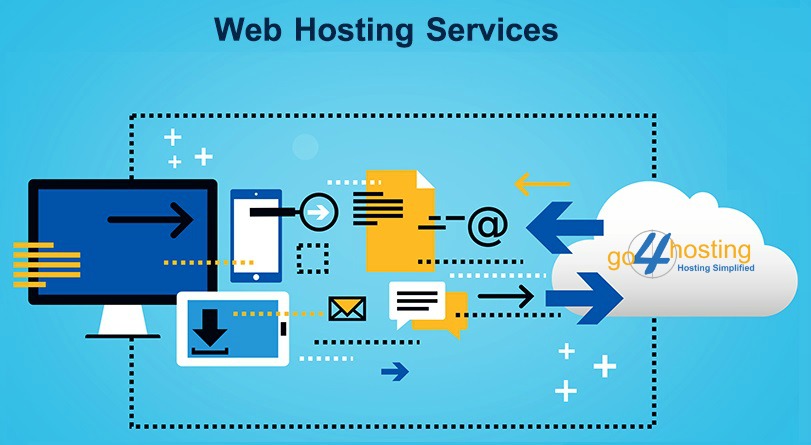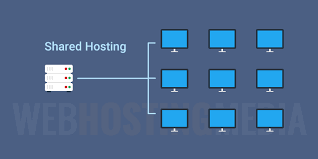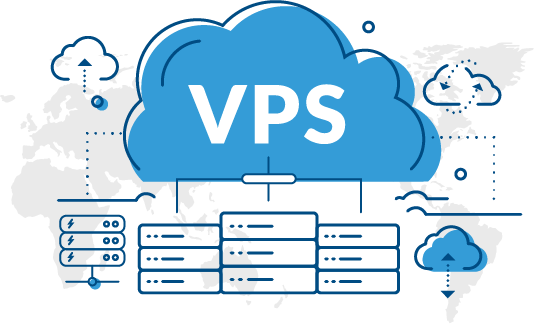When you choose hosting solutions for your website, you need to sign up with a plan which will grant you sufficient access to your site. For instance, when you sign up for shared servers, the control you will be given over your website will be far less as compared to dedicated or VPS hosting plans. Shared hosting solutions are ideal for businesses which are just getting launched and have a limited budget to work with. In this type of hosting, resources of a server are shared by multiple users. So, the control which one user can get over the site will automatically be limited as the clients in shared hosting environments get limited resources.
How can VPS hosting give you better site control?
In comparison, when you choose VPS hosting for your website, you will be granted root access to the server. So, you can configure the server settings to suit your business needs. You may also install custom software or applications to boost your business. This means that VPS hosting will offer you better site control and higher flexibility and customizability.
Most businesses which are starting out tend to sign up for shared hosting plans as these are cost-friendly and effective. However, as they start to grow, the demand for resources shoots up. With shared hosting, getting additional resources when you need these may be difficult. So, when companies decide to take the plunge into VPS hosting, they expect to enjoy better resource scalability and availability, advanced technical support facilities and higher security.
When is a shift to VPS hosting recommended for a website?
Without proper hosting solutions, you cannot expect to showcase your products before a targeted audience. But when the hosting solutions are not enough to cater to traffic demands or not up-to-the-mark, site performance can suffer. So, there comes a time when the web developers start to realize that the existing hosting plans are not enough to boost the business. This is when they start to explore other hosting alternatives like VPS hosting.
How is VPS hosting better than shared hosting?
When you choose shared servers, all the sites housed on the same physical server will be competing against one another for the server resources. In short, performance of one site is likely to be affected by performance of neighboring sites. So, in case any of the neighboring sites engage in malicious activities, the effects will be felt in your site as well. You can even get blacklisted and lose your rankings in search engines. Likewise when there is a hacking attempt in your neighbor’s site because of security loopholes in it, chances are high that your website will also get affected. The fact that all these co-users share the same IP address is what is at the root of the problems. Any website which uses spam emailing for building their business will hamper the entire server so much so that all the other sites automatically get blacklisted. Similarly, in case a site which shares the same server with you does not have proper coding or suffers from memory issues, it will end up using much of the server resourc
es causing your site to crash or slow down.
When you choose VPS hosting, these risks are mitigated because every virtual private server will own a distinct IP and will have access to a fair share of CPU and RAM. Since every site on this server has a distinct IP address, it can be protected from spam and other malware. So, its business credibility is not damaged. With dedicated hosting too, you can enjoy this protection against server crashes or the slowing down of websites for lack of resources. But, in dedicated hosting, the control lies in the hands of the provider and not the client when you have opted for managed dedicated hosting solutions.
This shows that VPS hosting plans are perhaps the best suited for your website when you wish to upgrade from shared hosting in order to get better site control. However, it also means that you should carefully review the features a provider offers before signing up for any package. While there are many factors to consider in this respect, one of the most important considerations is obviously the price. You need to find out how much you need to pay for bandwidth and how much you may have to pay extra for getting more bandwidth. There are businesses which often end up paying a lot more for resources that they have no real need for. So, to keep your costs low, you must determine the RAM and CPU needs for your website and choose a plan accordingly.
Your task is to get a provider which can give you scalable hosting solutions. This is because you will need more resources as your site steadily grows. So, you should have the option to scale up your resources with an increase in traffic. Finally, you must check for site control before you sign on the dotted line. This means you should be granted complete root access to this virtual server you should have the freedom to choose an operating system and reboot the server if needed from a web panel. The plan should even allow you to control the virtual server through programs and codes written by your developers.

















